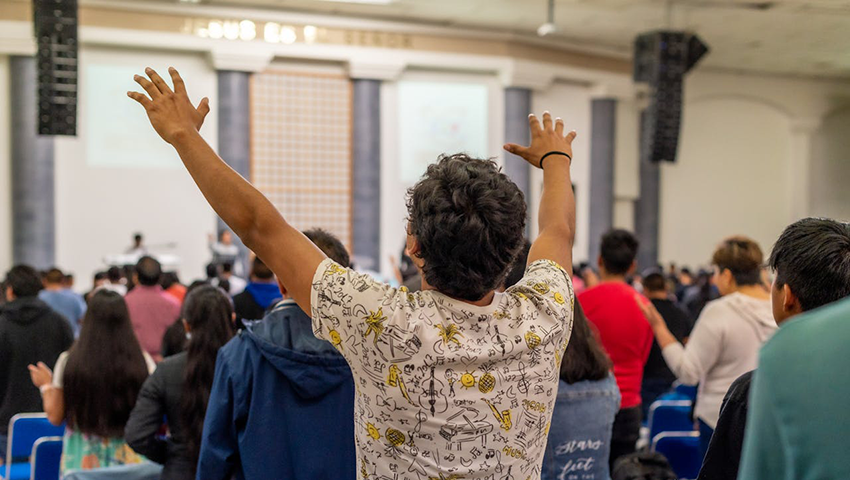More young adults in the U.S. are walking away from denominational churches—and not necessarily from church altogether.
According to the 2020 U.S. Religion Census, 6.5 million more Americans are now attending nondenominational churches than they were a decade earlier. In the same period, mainline Protestant churches like the United Methodist Church and Evangelical Lutheran Church in America saw major declines. Pew Research Center reports that membership in some of these groups has dropped by as much as 40% since 2000.
“Younger people don’t care much about denominational labels,” said Ryan Burge, a political scientist at Eastern Illinois University who researches religion and generational change. “They want authenticity, connection, and community. Labels just don’t matter as much to them.”
Burge isn’t alone in seeing the shift. A 2025 REACHRIGHT study found that nearly half of Americans went to church weekly as children, but only 20% do so now. The drop is sharpest among traditional denominations. Meanwhile, nondenominational churches continue to grow, especially among people under 40.
Many are drawn to these churches for their informality, flexible leadership, and lack of institutional baggage.
“I grew up Methodist, but I don’t see the point of denominations anymore,” said Lauren Kim, 27, who now attends a nondenominational church in Austin, Texas. “I want to be in a community that’s actually helping people, not stuck debating old theological arguments.”
Scott Thumma, director of the Hartford Institute for Religion Research, says churches that are thriving tend to avoid rigid denominational identities.
“They’re focusing on spiritual growth, service, and building real relationships,” he said. “That’s what younger generations are looking for.”
A 2023 Barna study backs that up. It found that millennials and Gen Z are more likely than older adults to say church should be a place for honest questions and open dialogue, not just a space to affirm inherited beliefs. Many nondenominational churches have embraced that approach, creating room for discussion, doubt, and action on social issues.
That doesn’t mean younger adults are turning away from spirituality. They’re just less likely to trust traditional religious institutions.
“Millennials and Gen Z aren’t necessarily less spiritual,” said Elizabeth Drescher, author of Choosing Our Religion: The Spiritual Lives of America’s Nones. “They just don’t see as much value in the structures that older generations built around faith.”
Technology is also changing the picture. Lifeway Research found that around half of U.S. churchgoers attended online services during the pandemic, and many still do. Online churches, apps, and livestreams have allowed people to explore faith across geographic and denominational lines.
“Digital church isn’t just a pandemic workaround,” Thumma said. “It’s a new form of church that appeals to people who want choice, connection, and flexibility.”
Some denominations are trying to adapt. The United Methodist Church has launched new churches without denominational branding to appeal to younger people. Others are putting more emphasis on social justice and service, hoping that action will speak louder than affiliation.
Still, the overall trend is clear: the importance of denominational identity is shrinking. What matters more to younger adults is whether a church is relevant to their lives, welcoming of questions, and active in the world around them.
The question many churches are now asking isn’t, How do we protect our label? It’s, What kind of space do we need to create for people to show up at all?
Right now, the answer looks less like a structure and more like a community—one that values relationships over rules, and presence over tradition.





